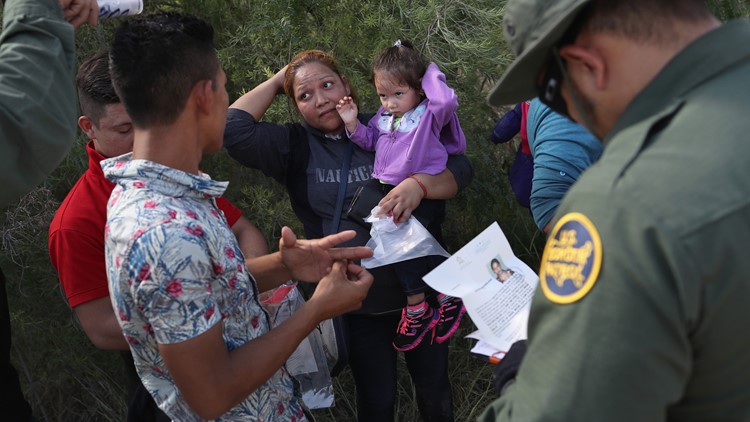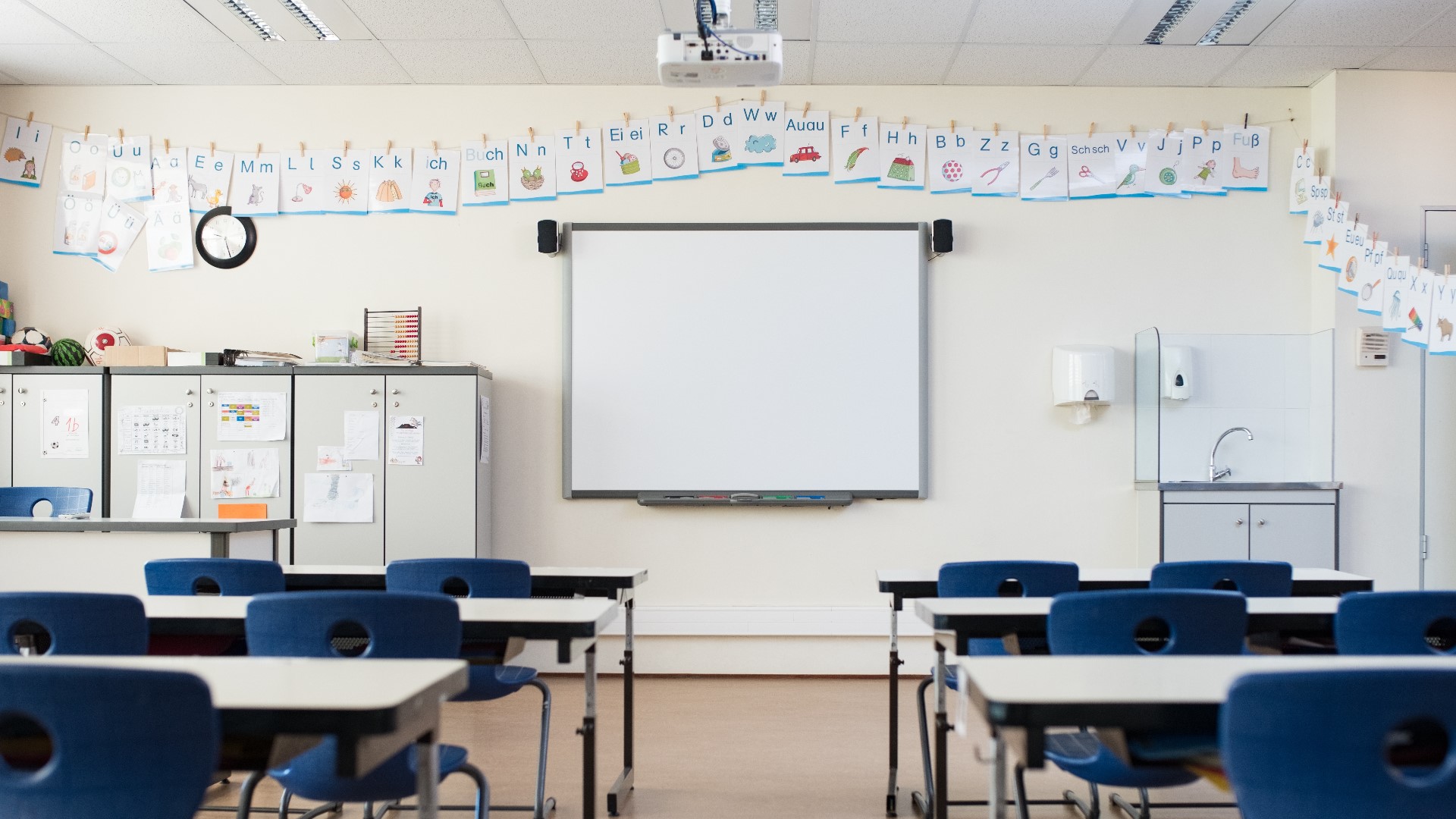The Trump administration has said its "zero tolerance" policy on immigration is an effort to deter individuals from entering the U.S. illegally.
Since its rollout, about 2,000 children have been separated from their parents at the US-Mexico border.
Here's a look at how this policy came to be:
March 2017: Former Secretary of Homeland Security John Kelly confirms that the administration was considering the policy of separating families as a deterrent to illegal immigration. Nearly 200 national, state and local organizations write a letter to Kelly in opposition of the policy. Multiple members of Congress also write letters to Homeland Security.
April 2017: After facing criticism, John Kelly backs down on his statements on family separation. Attorney General Jeff Sessions later issues a memo to federal prosecutors asking them to prioritize immigration violations.
December 2017: Eight organizations file a complaint with the DHS Office of Civil Rights and Civil Liberties after noticing several cases of family separation. The Senate votes to confirm Kirstjen Nielsen as the new Secretary of Homeland Security. John Kelly becomes President Donald Trump's chief of staff.
February 8, 2018: 75 members of Congress send a letter to Secretary Nielsen opposing family separation. "We are deeply concerned and disturbed by reports that the practice of separating families is increasing," it says. "Separating children from their parents is unconscionable and contradicts the most basic of American family values."
April 6, 2018: Sessions issues a memo to federal prosecutors directing them to adopt a "zero tolerance" policy for illegal entry into the U.S.
April 20, 2018: The New York Times publishes an article stating that DHS has already separated 700 children from their parents. More than 100 of them were under the age of 4.
May 4, 2018: The Department of Homeland Security releases a statement saying that they will no longer exempt certain groups from prosecution. "If you enter our country illegally, you have broken the law and will be referred for prosecution," the statement says. "Whether you are a single adult or an adult member of a family unit, if you are apprehended you will be prosecuted and put in removal proceedings."
May 7, 2018: Following his memo to federal prosecutors, Attorney General Jeff Sessions discusses the "zero tolerance" policy. "If you cross this border unlawfully, then we will prosecute you. It’s that simple," he says.
May 15, 2018: In a Senate committee hearing, Homeland Security Secretary Nielsen says that the Trump administration does not have a policy for family separation. "Our policy is, if you break the law, we will prosecute you," she says.
June 14, 2018: Attorney General Sessions defends the "zero tolerance" policy while speaking in Fort Wayne, Indiana. He quotes the Bible, saying, "I would cite to you the Apostle Paul and his clear and wise command in Romans 13, to obey the laws of the government because God has ordained them for the purpose of order."
June 15, 2018: DHS confirms that a total of 1,995 children were separated from their parents between April 19, 2018 and May 31, 2018.
President Donald Trump tweets, blaming Democrats for "forcing the breakup of families at the Border."
June 17, 2018: The U.S. Customs and Border Protection Office of Public Affairs releases a video of an immigrant processing facility in McAllen, Texas. Former first lady Laura Bush publishes an op-ed in the Washington Post, saying that separating children from their families at the border "breaks her heart."
First Lady Melania Trump also makes a statement about the "zero tolerance" policy. "Mrs. Trump hates to see children separated from their families and hopes both sides of the aisle can finally come together to achieve successful immigration reform," Melania Trump's communications director, Stephanie Grisham, tells CNN.
President Trump tweets again, saying that Democrats need to "get together with their Republican counterparts and work something out on Border Security."
June 18, 2018: President Trump blames Democrats in a tweet once again, saying, "It is the Democrats fault for being weak and ineffective." He tells Democrats to "start thinking about people devastated by crime."
In a speech to the National Sheriff's Association in New Orleans, Homeland Security Secretary Nielsen says "we will not apologize for doing our job." Nielsen says that the children are provided food, medical attention, and education. She tweeted earlier, "We do not have a policy of separating families at the border. Period."
Former first lady Michelle Obama responds to Laura Bush's article, saying "sometimes truth transcends party."
Representative Pramila Jayapal announces a "mass mobilization" of protests against family separation. A rally in Washington, D.C is planned for June 30 at 11AM, along with more than 100 sister protests in 40 different states across the nation.
June 19, 2018: House Republicans announce scramble to revise their legislation amid public outcry. They propose a change loosening a rule that now limit the amount of time minors can be held. Previously they could be help up to 20 days. The new rule would allow children to be held for extended periods, but with their parents.
President Trump meets with House Republicans in an effort to end the policy of separating families at the border. As Trump entered the Capitol basement for the closed-door session, he told reporters, "The system has been broken for many years, the immigration system. ... We're going to try and see if we can fix it."
More prominent figures come out with statements against the policy. "Star Trek" actor George Takei, slams the policy, calling it worse than Japanese internment during World War II.
"At least during the internment, when I was just 5 years old, I was not taken from my parents," said Takei, who spent his childhood in an internment camp. "At least during the internment, we remained a family, and I credit that alone for keeping the scars of our unjust imprisonment from deepening on my soul."
June 20, 2018: House Speaker Paul Ryan said that the House will vote on Thursday, June 21, on GOP immigration bills, but offered no back-up plan to end family separation if the measure fails to pass.
At the same time,
At the same time, Homeland Security secretary Kirstjen Nielson announced that DHS would be drafting an end to family separation. President Trump then announces that he will be signing an executive order to bring an end to family separation.
"We want to keep families together. It's very important," Trump told reporters during a White House meeting with members of Congress. "I'll be signing something in a little while that's going to do that."
This is a developing story. Please check back for updates.



